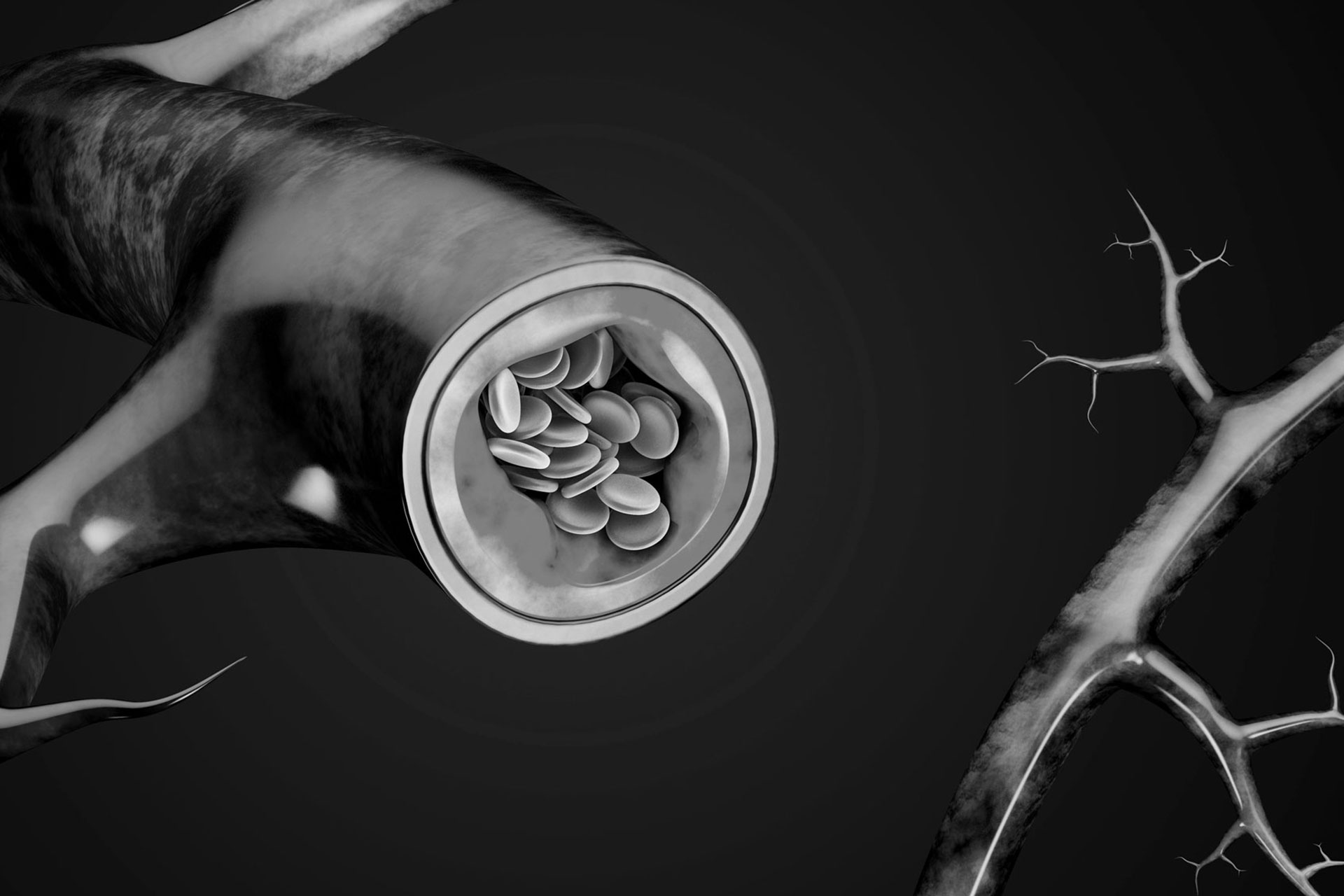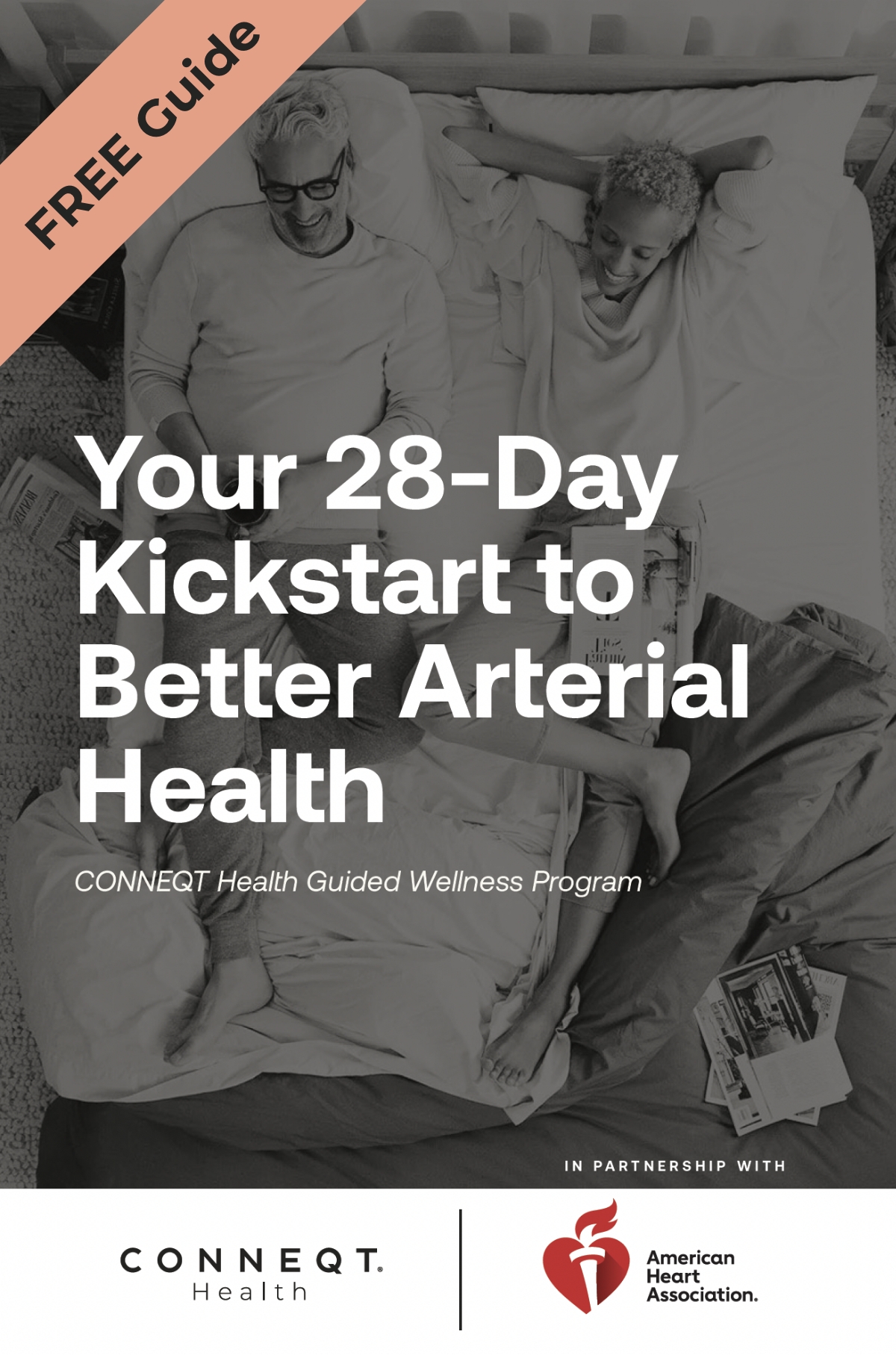Arterial stiffness plays a significant role in many conditions such as hypertension, heart disease, stroke, Alzheimer’s and kidney disease, and even sexual function. Understanding and managing arterial stiffness is essential for maintaining overall health and longevity.
Tweet
Arterial Stiffness Explained
Arterial stiffness is a condition where the arteries, the blood vessels responsible for carrying oxygen-rich blood from the heart to the rest of the body, become less flexible.
Imagine your arteries as rubber bands. When they are healthy, they stretch and bend easily as blood flows through them, making it easier for your heart to pump blood throughout your body.
When your arteries are flexible, they can expand when the heart pumps blood and then contract to help push the blood along. This flexibility helps keep your blood pressure at a healthy level and reduces the workload on your heart. However, certain factors can cause your arteries to lose their elasticity and become stiff. When your arteries become stiff, they can’t expand and contract as easily. This means your heart has to work harder to pump blood, which can increase your blood pressure. High blood pressure, in turn, puts extra strain on your heart and can lead to various health problems over time, such as heart disease and stroke, to name only a few.
In simple terms, arterial stiffness is like trying to water your garden with a stiff hose. A flexible hose lets the water flow smoothly and easily, but a stiff hose makes it much harder to get the water where it needs to go. Keeping your arteries flexible is crucial for maintaining good heart health and ensuring that blood can flow freely throughout your body.
“Hard arteries are a canary in the coal mine of arterial health, an early biomarker that may help clinicians and researchers predict heart attack, stroke, heart disease and other chronic degenerative diseases.”
Dr. Raymond Townsend, MD
Director of Hypertension at the University of Pennsylvania School of Medicine
Causes of Arterial Stiffness
Arterial stiffness can develop due to a variety of factors, primarily aging, lifestyle choices, and certain medical conditions. As we age, the proteins in our arterial walls, such as collagen and elastin, undergo changes that reduce their elasticity, similar to how an old rubber band loses its stretch. Additionally, calcium deposits can accumulate in the arterial walls over time, leading to hardening and stiffness, much like mineral deposits clogging old pipes.
Lifestyle factors also play a significant role. Diets high in saturated fats, salt, and sugar can damage the arteries, while physical inactivity weakens the arterial walls, making them less flexible. Smoking further accelerates this process by damaging the arterial lining. Moreover, several medical conditions contribute to arterial stiffness. Chronic high blood pressure can damage the arteries over time, diabetes can alter the arterial walls, and inflammatory diseases like rheumatoid arthritis can lead to inflammation and stiffness.
“As you get older, your body produces less nitric oxide which forces these tiny vessels to contract. And when the capillaries become smaller and more damaged, less blood is able to reach key organs, like the kidneys and the brain.”
Dr. Joseph Raffaele MD
Founder of Raffaele Medical & PhysioAge Health Analytics
Implications of Arterial Stiffness
Stiff arteries can lead to several serious health problems.
- Heart Diseases: When arteries become stiff, it’s harder for blood to flow through them, which can raise your blood pressure. High blood pressure puts extra strain on your heart and increases the risk of heart disease and stroke. Stiff arteries are also more likely to develop a buildup of plaque, which can narrow the arteries and restrict blood flow, much like clogged pipes.
- Cognitive Decline: Beyond heart issues, arterial stiffness can affect your brain health. Reduced flexibility in the arteries can impair blood flow to the brain, which may contribute to memory problems and conditions like dementia and Alzheimer’s disease.
- Kidney Disease: Additionally, stiff arteries can cause high blood pressure in the kidneys, leading to kidney disease. When the arteries that supply blood to the kidneys become stiff, the kidneys receive less oxygen and nutrients. This reduced blood flow can cause damage to the delicate tissues in the kidneys, impairing their ability to filter waste and regulate fluid balance in the body. Over time, this can lead to chronic kidney disease, where the kidneys gradually lose their function.
- Maternal Health and Pregnancy: Arterial stiffness can also impact maternal health during pregnancy. Stiffer arteries can lead to conditions like preeclampsia, which is characterized by high blood pressure and can pose serious risks to both the mother and the baby.
- Sexual Dysfunction: Arterial stiffness affects sexual function primarily by reducing blood flow to the genital organs, impairing the physiological processes necessary for sexual arousal and performance. Managing arterial stiffness through lifestyle changes (e.g., diet, exercise) and medical treatments (e.g., medications) can help mitigate these effects and improve sexual function.
Recognizing these risks highlights the importance of keeping our arteries flexible to maintain overall health.
“Man is only as old as his arteries.”
Thomas Sydenham
English Hippocrates (1624–1689)
Preventing and Managing Arterial Stiffness
While we can’t stop aging, there are several ways to prevent and manage arterial stiffness. Eating a healthy diet rich in fruits and vegetables provides essential nutrients that support artery health, similar to how good fuel keeps a car running smoothly. Cutting back on saturated fats and sugar helps prevent damage to the arteries, much like avoiding substances that clog pipes.
Regular exercise, such as walking, cycling, and swimming, keeps your arteries flexible, much like regular use keeps a rubber band stretchy. Strength training also supports overall heart health. Quitting smoking, if you are a smoker, is crucial because it improves artery function and reduces stiffness, similar to avoiding corrosive substances that damage pipes.
Some medications, like those that lower blood pressure and cholesterol, can also help keep arteries healthy. Regular check-ups with your doctor and using home monitoring devices like CONNEQT Pulse can help you keep track of any trends in arterial stiffness and catch any issues early. By following these steps, you can keep your arteries flexible and support your overall health.
Arterial stiffness is a significant indicator of cardiovascular health, impacting various aspects of well-being from heart function to cognitive health. By understanding the causes and implications of arterial stiffness, and taking proactive steps to manage it, you can improve your overall health and longevity. Regular monitoring and a healthy lifestyle are key to maintaining flexible, resilient arteries and reducing the risk of associated diseases.








